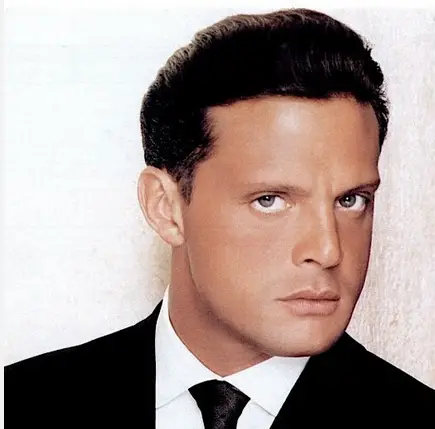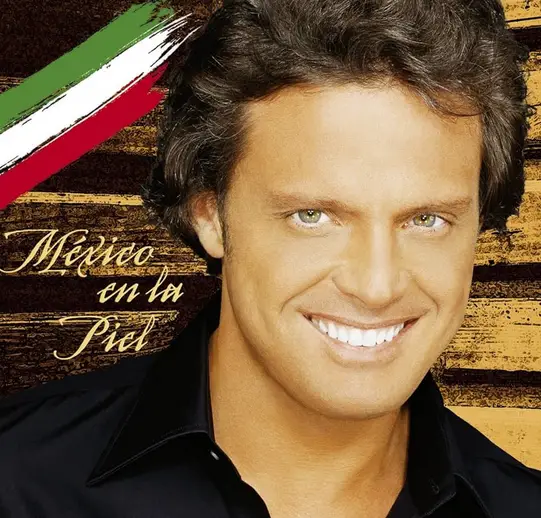Podcast: Play in new window | Download
Subscribe: Apple Podcasts | RSS
 Luis Miguel, known as El Sol de México, is more than a singer—he’s a cultural titan whose golden voice has defined Mexican music for decades. From child prodigy to global superstar, his boleros, mariachi anthems, and pop hits have woven him into the fabric of Mexico’s soul. Yet, behind the spotlight lies a shadowland of mystery. The disappearance of his mother, Marcela Basteri, in 1986 remains one of Latin America’s most haunting unsolved cases. Whispers of dark compromises, doppelgängers, and even ties to the occult, Illuminati, and cartels swirl around him. What did Luis Miguel sacrifice to become a legend? Could his mother’s mysterious disappearance be the key to a sinister truth? This is the story of El Sol, and the darkness that may have fueled his rise.
Luis Miguel, known as El Sol de México, is more than a singer—he’s a cultural titan whose golden voice has defined Mexican music for decades. From child prodigy to global superstar, his boleros, mariachi anthems, and pop hits have woven him into the fabric of Mexico’s soul. Yet, behind the spotlight lies a shadowland of mystery. The disappearance of his mother, Marcela Basteri, in 1986 remains one of Latin America’s most haunting unsolved cases. Whispers of dark compromises, doppelgängers, and even ties to the occult, Illuminati, and cartels swirl around him. What did Luis Miguel sacrifice to become a legend? Could his mother’s mysterious disappearance be the key to a sinister truth? This is the story of El Sol, and the darkness that may have fueled his rise.
Born in 1970 in Puerto Rico to an Italian mother, Marcela Basteri, and a Spanish father, Luis Rey, Luis Miguel Gallego Basteri was thrust into stardom at age 11 with his 1982 album title “Un Sol.” His voice, impossibly mature for a child, captivated Mexico. By his teens, he was a phenomenon, starring in films like Ya Nunca Más, touring the world, and churning out hits that blended pop with the passion of traditional Mexican music. According to Mexico News Daily, his 2023–2024 world tour broke records, proving his enduring grip on fans. But this glittering career was shaped by a darker force: his father, Luis Rey. Luis Rey, a charismatic yet controlling figure, managed his son’s early career with an iron grip. Mexican newspaper El País reports that Luis Rey’s relentless ambition drove Luis Miguel to fame but robbed him of a childhood. By the late 1980s, their relationship fractured over allegations of financial mismanagement, and some say embezzlement. Luis Miguel fired his father, and in 1992, Luis Rey died in Spain under murky circumstances. Was it a broken heart, as some claim, or something more sinister? The mystery deepens when we turn to the most enduring enigma of Luis Miguel’s life: his mother’s disappearance.
 In 1986, Luis Miguel’s mother, Marcela Basteri, vanished without a trace. She was last seen at an Italian airport, reportedly traveling to Spain with her youngest son, Sergio, seeking to escape her troubled marriage to Luis Rey. She never arrived. Nearly four decades later, her fate remains unknown, a wound that still haunts Luis Miguel and his fans. In 2023, the singer posted on Instagram a photo of himself as a child with Marcela on Mexican Mother’s Day. The cryptic heart emoji accompanying the post sent fans into a frenzy, reigniting questions: What happened to Marcela? Was she murdered, did she flee, or is she still out there? Theories abound. Some believe Marcela suffered a mental breakdown and chose to disappear, starting a new life far from the chaos of her son’s fame. A darker narrative points to Luis Rey, as a manipulative figure who clashed with Marcela over his control of their son. Some fans speculate Luis Rey orchestrated her disappearance to protect his grip on Luis Miguel’s career, or to silence her. Spanish journalist Javier León Herrera, in his book Oro de Rey, suggests Luis Miguel and his brothers know more than they’ve revealed, but fear or loyalty keeps them silent. Then there’s the wildest claim: Argentine journalist Luis Ventura, in a Canal 4 interview, insisted Marcela is alive, hiding in Buenos Aires’ Constitución neighborhood under a new identity. He offered no proof, and skeptics dismiss it as mere fodder for tabloids. But could her disappearance be tied to something bigger, something linked to the dark underbelly of the entertainment industry? What if Marcela knew secrets about her son’s rise to fame that someone wanted buried?
In 1986, Luis Miguel’s mother, Marcela Basteri, vanished without a trace. She was last seen at an Italian airport, reportedly traveling to Spain with her youngest son, Sergio, seeking to escape her troubled marriage to Luis Rey. She never arrived. Nearly four decades later, her fate remains unknown, a wound that still haunts Luis Miguel and his fans. In 2023, the singer posted on Instagram a photo of himself as a child with Marcela on Mexican Mother’s Day. The cryptic heart emoji accompanying the post sent fans into a frenzy, reigniting questions: What happened to Marcela? Was she murdered, did she flee, or is she still out there? Theories abound. Some believe Marcela suffered a mental breakdown and chose to disappear, starting a new life far from the chaos of her son’s fame. A darker narrative points to Luis Rey, as a manipulative figure who clashed with Marcela over his control of their son. Some fans speculate Luis Rey orchestrated her disappearance to protect his grip on Luis Miguel’s career, or to silence her. Spanish journalist Javier León Herrera, in his book Oro de Rey, suggests Luis Miguel and his brothers know more than they’ve revealed, but fear or loyalty keeps them silent. Then there’s the wildest claim: Argentine journalist Luis Ventura, in a Canal 4 interview, insisted Marcela is alive, hiding in Buenos Aires’ Constitución neighborhood under a new identity. He offered no proof, and skeptics dismiss it as mere fodder for tabloids. But could her disappearance be tied to something bigger, something linked to the dark underbelly of the entertainment industry? What if Marcela knew secrets about her son’s rise to fame that someone wanted buried?
 The global narrative of child stars often involves grim trade-offs. Shirley Temple faced inappropriate advances from producers; Corey Feldman exposed what he called a pedophile ring in Hollywood. Could Luis Miguel, a child star in Mexico’s high-stakes 1980s music industry, have faced similar pressures? And could his mother’s disappearance be linked to her intent to expose those truths? In the 1980s, Mexico’s entertainment industry, dominated by labels like EMI, was a world of big money and bigger egos. Child stars like Luis Miguel, Verónica Castro, or Lucerito endured grueling schedules and intense scrutiny. At 15, Luis Miguel was recording albums, filming movies, and touring relentlessly. Luis Rey, his gatekeeper, negotiated deals with industry giants. Billboard notes that Luis Rey’s mismanagement led to financial disputes, but persistent rumors suggest more. Could Luis Rey have made shadowy deals—perhaps even compromising his son’s well-being—to secure contracts? Fans speculate that Luis Miguel’s reclusive nature and emotional distance as an adult hint at severe traumas buried deep, possibly from exploitative situations in his youth. What if Marcela discovered something sinister? Picture a mother, far from home in Italy or Spain, watching her son’s childhood consumed by fame. What if she learned of inappropriate demands from record executives or saw Luis Rey crossing ethical lines to keep the money flowing? Some researchers propose that Marcela planned to speak out, to pull Luis Miguel from the spotlight or expose industry abuses. Her disappearance, in this theory, was no accident. Someone, perhaps Luis Rey or a powerful industry figure, ensured her silence to protect the cash cow that was El Sol de México. While no hard evidence supports this, it aligns with the global pattern of child star exploitation, where parents or whistleblowers are sidelined or permanently gagged to maintain the status quo. Mexico’s industry, less scrutinized than Hollywood, could have hidden similar secrets in its shadows.
The global narrative of child stars often involves grim trade-offs. Shirley Temple faced inappropriate advances from producers; Corey Feldman exposed what he called a pedophile ring in Hollywood. Could Luis Miguel, a child star in Mexico’s high-stakes 1980s music industry, have faced similar pressures? And could his mother’s disappearance be linked to her intent to expose those truths? In the 1980s, Mexico’s entertainment industry, dominated by labels like EMI, was a world of big money and bigger egos. Child stars like Luis Miguel, Verónica Castro, or Lucerito endured grueling schedules and intense scrutiny. At 15, Luis Miguel was recording albums, filming movies, and touring relentlessly. Luis Rey, his gatekeeper, negotiated deals with industry giants. Billboard notes that Luis Rey’s mismanagement led to financial disputes, but persistent rumors suggest more. Could Luis Rey have made shadowy deals—perhaps even compromising his son’s well-being—to secure contracts? Fans speculate that Luis Miguel’s reclusive nature and emotional distance as an adult hint at severe traumas buried deep, possibly from exploitative situations in his youth. What if Marcela discovered something sinister? Picture a mother, far from home in Italy or Spain, watching her son’s childhood consumed by fame. What if she learned of inappropriate demands from record executives or saw Luis Rey crossing ethical lines to keep the money flowing? Some researchers propose that Marcela planned to speak out, to pull Luis Miguel from the spotlight or expose industry abuses. Her disappearance, in this theory, was no accident. Someone, perhaps Luis Rey or a powerful industry figure, ensured her silence to protect the cash cow that was El Sol de México. While no hard evidence supports this, it aligns with the global pattern of child star exploitation, where parents or whistleblowers are sidelined or permanently gagged to maintain the status quo. Mexico’s industry, less scrutinized than Hollywood, could have hidden similar secrets in its shadows.
 Luis Miguel’s enigmatic persona has spawned rumors that rival the wildest supermarket tabloid tales. In 2023, during his blockbuster world tour, Argentine journalist Luis Ventura dropped a bombshell: the man performing in Buenos Aires wasn’t Luis Miguel at all but a very convincing body double. He cited differences in ears, hairline, and teeth, even consulting dentists to bolster his claim. Social media platforms erupted with side-by-side photos, fans swearing a fake Luis Miguel was lip-syncing the whole show. Some also noted that the “new” Luis Miguel was unable to play the piano or sing in Italian, and the difference in weight was dramatic. Why would there be a need for a double? Some theorized Luis Miguel was too ill or reclusive to perform, hiring look-alikes to keep the tour alive. Others went further, claiming the real Luis Miguel was either killed or just vanished years ago, replaced by a stand-in to preserve his empire. It’s important to note that Luis Ventura was not the first to claim that Luis Miguel had been replaced. In 2019 a popular Mexican clairvoyant stated that she believed the most famous singer in Mexico had been swapped out and she had been in communication with the spirit of the real Luis Miguel who had since passed over. In an age of deepfakes and celebrity mystique, this conspiracy thrives, though it’s likely just the product of an aging star’s changing appearance. Then there’s the recurring “Luis Miguel is dead” rumor. Every few years, reports of the singer’s death sweep Mexico, sparking grief until he resurfaces, tan, svelte and crooning. These hoaxes stem from his reclusive lifestyle. Luis Miguel rarely grants interviews, and his private life is a fortress. A 2017 arrest in Los Angeles for unpaid debts, only fueled speculation that Luis Miguel is dodging bigger secrets. But the most sensational rumors go beyond doppelgängers and death hoaxes, plunging into the realm of the occult and shadowy power. Enter the conspiracy that Luis Miguel’s career is tied to dark forces. In some more fringe forums on the internet, some claim his meteoric rise and enduring success suggest a pact with elite circles, perhaps not the Illuminati, but something distinctly Mexican. Picture this: Luis Rey, desperate to make his son a star, allegedly mingled with powerful figures in Mexico’s 1980s elite, from corrupt business tycoons to cartel bosses. Whispers suggest he struck deals with these forces, offering loyalty or even darker sacrifices and exchanges to secure Luis Miguel’s fame. Some speculate that Marcela’s disappearance was a price paid, a ritualistic silencing to seal the pact. Others tie Luis Miguel’s golden voice to occult rituals, claiming his music carries a hypnotic power that explains his grip on fans. His songs and music videos are claimed to be used as vehicles to foster hidden social engineering agendas. One theory posits that his very nickname, El Sol de México, is a nod to esoteric sun worship, linking him to secret societies that control global entertainment. Cartel connections add another layer. The 1980s Mexican music industry wasn’t immune to organized crime’s influence, with some promoters and venues allegedly tied to narco money. Could Luis Rey’s shady dealings have entangled him with cartels? Fans speculate that Marcela stumbled onto these connections, perhaps uncovering payoffs or threats tied to her son’s career. Her disappearance, in this narrative, was a cartel hit to keep her quiet. While no evidence supports these claims, they resonate in a country where narco influence has long cast a shadow over public life. And after all, hundreds of millions of dollars are at stake here with Luis Miguel serving as a multi-decades-long ATM machine, generating a seemingly endless amount of cash for many different people and concerns.
Luis Miguel’s enigmatic persona has spawned rumors that rival the wildest supermarket tabloid tales. In 2023, during his blockbuster world tour, Argentine journalist Luis Ventura dropped a bombshell: the man performing in Buenos Aires wasn’t Luis Miguel at all but a very convincing body double. He cited differences in ears, hairline, and teeth, even consulting dentists to bolster his claim. Social media platforms erupted with side-by-side photos, fans swearing a fake Luis Miguel was lip-syncing the whole show. Some also noted that the “new” Luis Miguel was unable to play the piano or sing in Italian, and the difference in weight was dramatic. Why would there be a need for a double? Some theorized Luis Miguel was too ill or reclusive to perform, hiring look-alikes to keep the tour alive. Others went further, claiming the real Luis Miguel was either killed or just vanished years ago, replaced by a stand-in to preserve his empire. It’s important to note that Luis Ventura was not the first to claim that Luis Miguel had been replaced. In 2019 a popular Mexican clairvoyant stated that she believed the most famous singer in Mexico had been swapped out and she had been in communication with the spirit of the real Luis Miguel who had since passed over. In an age of deepfakes and celebrity mystique, this conspiracy thrives, though it’s likely just the product of an aging star’s changing appearance. Then there’s the recurring “Luis Miguel is dead” rumor. Every few years, reports of the singer’s death sweep Mexico, sparking grief until he resurfaces, tan, svelte and crooning. These hoaxes stem from his reclusive lifestyle. Luis Miguel rarely grants interviews, and his private life is a fortress. A 2017 arrest in Los Angeles for unpaid debts, only fueled speculation that Luis Miguel is dodging bigger secrets. But the most sensational rumors go beyond doppelgängers and death hoaxes, plunging into the realm of the occult and shadowy power. Enter the conspiracy that Luis Miguel’s career is tied to dark forces. In some more fringe forums on the internet, some claim his meteoric rise and enduring success suggest a pact with elite circles, perhaps not the Illuminati, but something distinctly Mexican. Picture this: Luis Rey, desperate to make his son a star, allegedly mingled with powerful figures in Mexico’s 1980s elite, from corrupt business tycoons to cartel bosses. Whispers suggest he struck deals with these forces, offering loyalty or even darker sacrifices and exchanges to secure Luis Miguel’s fame. Some speculate that Marcela’s disappearance was a price paid, a ritualistic silencing to seal the pact. Others tie Luis Miguel’s golden voice to occult rituals, claiming his music carries a hypnotic power that explains his grip on fans. His songs and music videos are claimed to be used as vehicles to foster hidden social engineering agendas. One theory posits that his very nickname, El Sol de México, is a nod to esoteric sun worship, linking him to secret societies that control global entertainment. Cartel connections add another layer. The 1980s Mexican music industry wasn’t immune to organized crime’s influence, with some promoters and venues allegedly tied to narco money. Could Luis Rey’s shady dealings have entangled him with cartels? Fans speculate that Marcela stumbled onto these connections, perhaps uncovering payoffs or threats tied to her son’s career. Her disappearance, in this narrative, was a cartel hit to keep her quiet. While no evidence supports these claims, they resonate in a country where narco influence has long cast a shadow over public life. And after all, hundreds of millions of dollars are at stake here with Luis Miguel serving as a multi-decades-long ATM machine, generating a seemingly endless amount of cash for many different people and concerns.
 Why do these stories captivate us? Because Luis Miguel is Mexico’s heart. His music, from aching romantic ballads to the mariachi swagger of many of his pop songs, embodies the nation’s passion and pride. Yet his silence fuels the myths. A Netflix series on the singer offered a glimpse into his pain, especially over Marcela, but Luis Miguel controls the narrative, sharing only fragments like his 2023 Mother’s Day post. Researchers suggest Luis Miguel knows more about his mother’s fate but stays silent, out of fear, guilt, or something else? His reclusive nature, coupled with his flawless public image, makes him a canvas for our wildest imaginings. What is the truth? Did Luis Miguel pay a dark price for fame, like so many child stars? Was Marcela silenced to protect secrets about his career, industry abuses, occult pacts, or cartel ties? Or is this a personal tragedy, a family torn apart by ambition and loss, with no grand conspiracy involved at all? The lack of answers keeps the mystery alive. Luis Miguel remains El Sol de México – the Mexican Sun – shining brightly but casting long shadows. Perhaps the real question isn’t what happened, but what we want to believe about a star who seems both untouchable and deeply human. In the end, the enigma of Luis Miguel endures, a riddle as haunting as his voice.
Why do these stories captivate us? Because Luis Miguel is Mexico’s heart. His music, from aching romantic ballads to the mariachi swagger of many of his pop songs, embodies the nation’s passion and pride. Yet his silence fuels the myths. A Netflix series on the singer offered a glimpse into his pain, especially over Marcela, but Luis Miguel controls the narrative, sharing only fragments like his 2023 Mother’s Day post. Researchers suggest Luis Miguel knows more about his mother’s fate but stays silent, out of fear, guilt, or something else? His reclusive nature, coupled with his flawless public image, makes him a canvas for our wildest imaginings. What is the truth? Did Luis Miguel pay a dark price for fame, like so many child stars? Was Marcela silenced to protect secrets about his career, industry abuses, occult pacts, or cartel ties? Or is this a personal tragedy, a family torn apart by ambition and loss, with no grand conspiracy involved at all? The lack of answers keeps the mystery alive. Luis Miguel remains El Sol de México – the Mexican Sun – shining brightly but casting long shadows. Perhaps the real question isn’t what happened, but what we want to believe about a star who seems both untouchable and deeply human. In the end, the enigma of Luis Miguel endures, a riddle as haunting as his voice.
